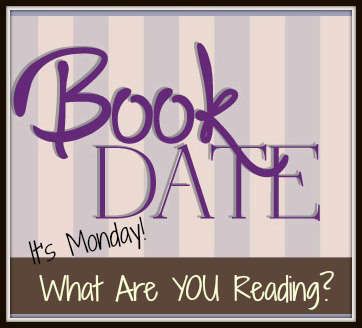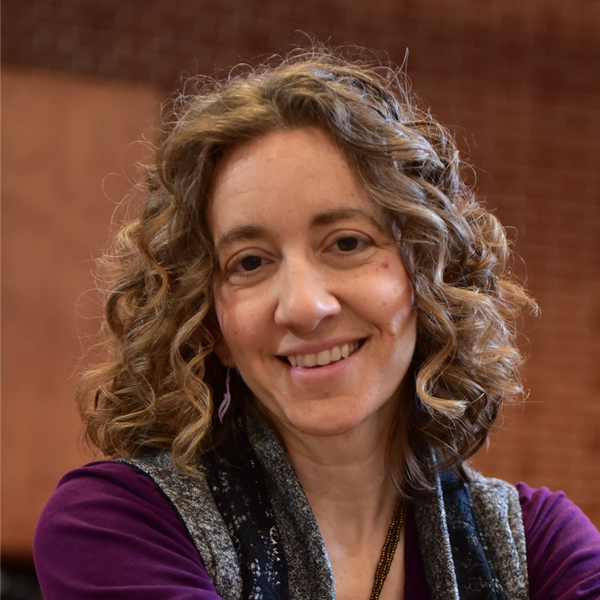Sunday, February 28, 2021
Review: The Path to Sunshine Cove
Wednesday, February 24, 2021
After the Crash: My Review
About the Book:
My Comments:
Monday, February 22, 2021
It's Monday, What Are You Reading?
Thursday, February 18, 2021
Why This Title: Review and Discussion on The Nature of Fragile Things
About the Book:
Sophie Whalen is a young Irish immigrant so desperate to get out of a New York tenement that she answers a mail-order bride ad and agrees to marry a man she knows nothing about. San Francisco widower Martin Hocking proves to be as aloof as he is mesmerizingly handsome. Sophie quickly develops deep affection for Kat, Martin's silent five-year-old daughter, but Martin's odd behavior leaves her with the uneasy feeling that something about her newfound situation isn't right.Then one early-spring evening, a stranger at the door sets in motion a transforming chain of events. Sophie discovers hidden ties to two other women. The first, pretty and pregnant, is standing on her doorstep. The second is hundreds of miles away in the American Southwest, grieving the loss of everything she once loved.
The fates of these three women intertwine on the eve of the devastating earthquake, thrusting them onto a perilous journey that will test their resiliency and resolve and, ultimately, their belief that love can overcome fear.
My Comments:
Throwback Thursday Book Blog Style
As book bloggers, most of us read a LOT of books and generally we review new ones, but just because a book isn't the newest and latest doesn't mean it isn't any good. More than a few of us have been blogging for many years and have reviewed hundreds of books. In looking at our archives we see books that we forgot we loved and books that probably should be forgotten.
This link-up is chance to share your old reviews. The only rules are 1) share one review from this month (February) of any year but 2021 and 2) visit other participants. So dig into those archives for books you think we ought to read! You can add links (only one per person please) through Wednesday at 6. Next week's link-up will go live Thursday at 6 a.m.
You are invited to the Inlinkz link party!
Click here to enterMonday, February 15, 2021
Religion and Fiction
When it comes to challenges for book bloggers, I'll admit, I don't usually play. However, this year, one caught my eye: The Book Blog Discussion Challenge. Basically the idea is to commit to posting a certain number of discussion posts during the year, and then to link up and follow other bloggers discussions. This is my first entry for that challenge. I signed up at the Dabbler level, but I'm aiming for the high end of the scale.
Religion in Fiction
Kathleen Basi's Thoughts:
I've had a lot of anxiety over the years about my fiction. For example, there's a little bit of mild language in this book, and it's not really who I am--but I know that it's authentic. There are things that are talked about in this book, things that Miriam witnesses and things that are addressed head on such as sex outside of marriage and related issues that made me nervous as very committed Catholic whose faith is very, very important to me.
However, I believe we don't do ourselves any good by pretending that the ugly things in the world don't exist. If we create this Pleasantville kind of world in which everything is black and white, and there's the good guys and the bad guys , we contribute to a binary view of the world that does not hold up to reality. And if we want our faith to be able to witness to the real world, we have to acknowledge what the real world is like.
To circle back around, I have always existed in a real anxiety about how I'm on the crack between secular fiction and Christian fiction, because I'm really coming at it with a Christian worldview. And yet, at the same time, I'm departing from the some of the topics that would be in most Christian fiction.
One of my critique partners all the way through was saying, "Well, of course, she's [Miriam] having an existential crisis, any person of faith who goes through what she's going through-- she's grappling with the loss of her family-- it would be weird and inauthentic if she didn't have these questions."
Kathleen and I talked for quite some time, but here is where we talked about faith in fiction
From Penelope Stokes:
That shift was intentional.... I wanted to be able to address issues of diversity from a spiritual perspective, and as you observed, I wasn’t able to do that in a conventional Christian publishing setting.
I originally published in the evangelical markets because...that’s where I started...and...because at the time the general market wasn’t doing much with spiritual fiction.... It’s true that my general market novels contain subject matter that would be unacceptable to an evangelical publisher, and some of my early readers have castigated me for abandoning my faith. Nothing could be further from the truth.... I really want readers to see that our preconceived notions of God are just that—our notions.
In the sense of writing evangelical novels that offer answers instead of raising questions? Probably not. But then, even when I was writing for the Christian markets, my novels didn’t fit that mold. I was always pretty much a duck out of water.
My Comments:
Too many Christians think we are supposed to use the arts to give people the answers. We’re not. We’re supposed to use the arts to lead them into a question.
Review: Moments Like This
About the Book:
My Comments:
It's Monday What Are You Reading?
Happy Lundi Gras! Parades are all cancelled but this is the year of the house floats. Instead of standing still watching floats drive by, we are driving by houses made to look like parade floats.
 |
| Making the front entrance into a King Float |
 |
| Mardi Gras Indians in Costume (an African-American tradition) |




Sunday, February 07, 2021
Monday Memes
This post is linked to Mailbox Monday, and to Its Monday What Are You Reading. Check out the linked posts to keep your finger on the pulse of the book blogging world.
I got my monthly email from Amazon inviting me to pick my free Prime Reading book for the month. None of them appealed to me. However, since I didn't have any "I wants" I decided to try reading outside my comfort zone and selected
Saturday, February 06, 2021
How to Write a Novel
The process of writing, revision and publication begins with a question--are you a plotter or a pantser? Some people write by the seat of their pants. I like to plot things out. I get completely paralyzed if I don't know where I'm going....I want to have a framework to start.
I thought A Song for the Road would write itself because it was a road trip and had this built in structure.
The rough draft came out pretty quickly. But the revision process was long and painful on this book. Well, I shouldn't say painful. I actually enjoy revision. Drafting is difficult for me, but once the dough is mixed, and you get to get in there and knead and shape it—that's the part that I really enjoy. I think I spent six or seven months writing the draft of this book, and then another year and a half revising it.
When I started getting requests from agents, I did two more revisions for two agents who were interested in it, and ended up signing with one of them. And then did another revision after that before my agents felt like it was ready to go on submission. When it sold, then there was another major revision. It wasn't terrible, but it was it was big. I took out a major plotline that that had been sort of central at the beginning, but by that time, the book had matured into something else. We did another more minor round of revisions in the fall before I sent it in final manuscript.
Then I asked her: "What was the difference? Without recounting the four different versions, I mean, was Miriam always been the same person?"
Miriam has always been the same person. By the time A Song for the Road went out to agents and all of that, her character was pretty well set.
But in my initial concept for this book, this was a road trip that was structured around social media. She became an internet sensation. And while she was trying to have this private trip, she was also dealing with trolls, and people showing up wherever she was going to be.
I thought that gave her an extra layer of conflict: she was trying to do this intensely private this thing in public. But in the later stages of revision, editors and agents said this book doesn't need that. So most of it went away. In earlier versions of the book, at the end of every section, I had Facebook and Twitter interactions, stuff about her followers and how she was going viral. All of that went away in order to streamline and focus on what Miriam was going through.
Since Kathleen is also a composer and writes non-fiction, I asked her "So you're a composer, and you're a writer, and you write long fiction novels, you've also written a lot of magazine articles, you've written short books dealing with the liturgical seasons and so forth. How is writing a novel the same or different than writing music or writing shorter forms?
The challenge is different for each one. With nonfiction the structure sort of takes care of itself. You figure out, “Here’s the topic, and here's how I'm going to break it down.” You get to use headings and subheadings. It's short pieces, and then you just have to tie them together. What's hard about writing nonfiction is making it so that somebody would actually want to read it. It can't just be dry recitation of facts. So that's what's challenging.
In fiction, it's a lot harder to come up with the structure that propels it forward. You don't have those subheadings to guide you. Which was why the road trip was so nice, because it kind of gave me that structure. But with fiction, you have a lot more freedom to play with language, to pause and stop and really dig into the moments and things that would just not be appropriate in nonfiction.
With music, I'm writing texts for use in worship, and that I find much, much more difficult, actually. Because the syllables have to fall just right, and you have very few syllables to get a message across. It’s more accessible to congregational singing if it's consistent from one verse to the next, and that imposes a huge, huge amount of work on the composer to come up with texts that are that are appropriate theology, and which have the same number of syllables in the same stress pattern in every verse, and where accent syllables fall in the right place. So yeah, that's hard, hard work.
Fiction is incredibly freeing compared to that. I'm not constrained in the same way. But I would imagine all of that text work means that I'm thinking about sentence cadence in a different way than I would if I just wrote fiction.
























